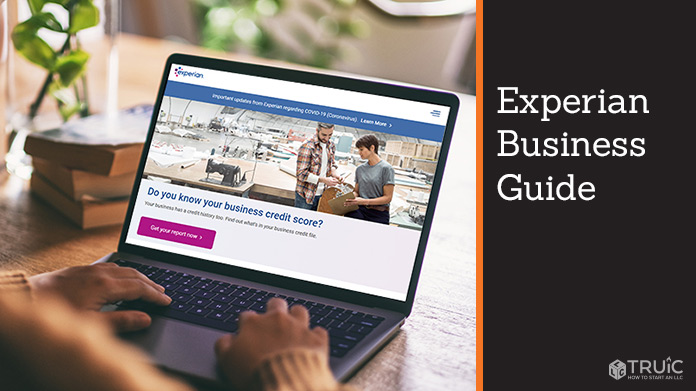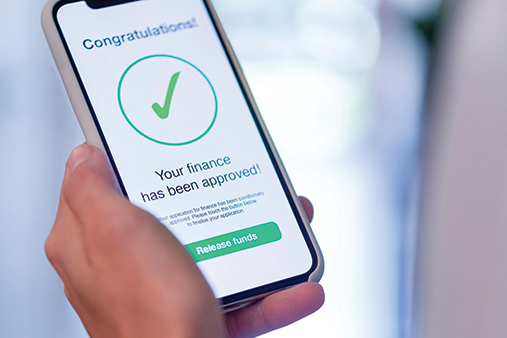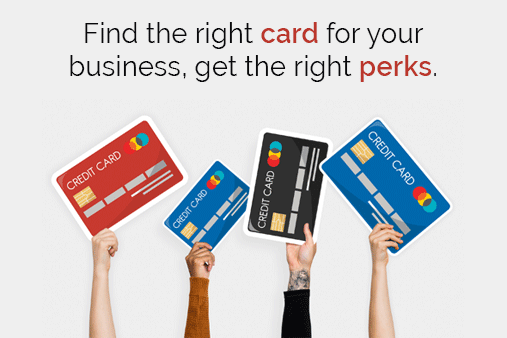Experian Business Guide
Building up your credit profile with Experian Business serves to legitimize your business and help position it for acquiring higher lines of credit in the future. Read on as we explain how to build Experian Business credit and why it’s such an important step toward maintaining healthy business credit.

Experian Business Credit Basics
Establishing Experian’s business credit starts with creating an Experian profile on their site. If you’re already doing business with trade partners who report to Experian Business, you already have an established business credit profile. Once your business has been included in their database, you are building business credit.
- Make sure your business is a separate legal entity. We recommend forming a limited liability company (LLC).
- Contact the Internal Revenue Service (IRS) for an Employer Identification Number (EIN). You need this to open a business bank account.
- Open a business bank account in the exact legal name of your business. Make sure it matches the name on your LLC filing.
- Set up a business phone number with a 411 directory listing. This shows lenders that you are a legitimate business.
- Set-up net-30 accounts with vendors that report to Equifax Small Business.
- Check your business profile regularly to ensure proper reporting and that all information is correct.
The Experian Intelliscore PlusSM is the credit rating system used by Experian Business as a guide for potential lenders and vendors when choosing to extend credit to businesses. The ranking system is from 1-100, with higher numbers indicating lower risk. To fall into the low-risk category, you’ll need a score between 76-100.
Recommended: Check out our simple free guide on how to build business credit.
Establishing Credit for Your Business
Like personal credit, business credit lines are also reported to business credit reporting agencies, including Experian Business. Here’s how you can establish and grow credit for your business.
Step 1: Obtain an EIN Number for your business
EIN stands for Employer Identification Number. The EIN is a number assigned to your business by the IRS for tax identification purposes. Your bank and partner vendors may also require this information before choosing to do business with your company.
If you’re just starting out in business, you may be wondering how to obtain an EIN number? You can obtain an EIN by filling out IRS Form SS-4, or you can simply complete the process online.
Caution: Some less than credible websites may lead you to believe there is a fee associated with obtaining an EIN. This is false and predatory, as the IRS does not charge for establishing an EIN.
Tip: If you choose to apply for a business credit card, you can apply with the business EIN rather than your Social Security number. Make sure to build your business credit first, though.
Step 2: Open a business banking account
Every new business needs a business bank account. There are numerous benefits to opening up a business bank account:
- Maintain the corporate veil by keeping personal and business accounts separate.
- Make bookkeeping simple.
- Open a merchant account to accept credit card payments. You probably want to get a point-of-sale (POS) system, too.
- Business banking is a prerequisite if you decide later to set up an LLC, take on a partner, or sell your business.
Using a business bank account is practically a necessity. A major stumbling block of using a personal bank account for your business is that you will not be contributing to your Experian Intelliscore PlusSM score. The credit information will be included in your personal credit report, not your business credit report.
Step 3: Establish lines of credit with large starter vendors
There are a myriad of ways to start building your Experian business credit, and one of the fastest and easiest ways is to establish lines of vendor credit with large corporations. Some examples of companies that can help you establish vendor credit include:
- Uline.com (shipping supplies and office equipment)
- Quill.com (office, cleaning, and packaging supplies)
- Grainger.com (industrial supplies like hardware, power tools, etc.)
Vendor partners have reporting requirements that must be fulfilled before they will send transaction information to Experian Business. Net-30 vendors may require a minimum order amount before reporting to the business credit bureaus, or require prepayment for new businesses looking to establish business credit.
Important: Choose vendors who report business transaction data to Experian Business to begin actively building your Experian Intelliscore PlusSM score. Credit won’t be built if it is not reported.
Step 4: Make payments on time
This simple crucial step is often forgotten in the excitement of running a business by novice business owners. Making payments on time (or early) is a leading metric used by creditors to evaluate the risk associated with extending credit to businesses. One key is to keep careful financial records, so you don’t accidentally miss payments.
Recommended: Always pay at least the minimum balance to your business creditors every month to continue building good credit.
Step 5: Monitor your business credit report
Stay informed on your business credit status by requesting a report from Experian Business. You can use this report to make sure your business information is correct and up to date.
Experian also offers several paid services that can help you protect and grow your business. You can choose from business credit reports, credit monitoring, and even cash flow management.
Recommended: Continue building your business credit with paid credit services offered by Experian Business. They offer multiple options to suit your business needs.
Business Credit Best Practices
Most business managers agree on the following best practices for growing or improving business credit ratings:
- Set up lines of credit with more than one vendor: This will allow you to show multiple trade lines reporting on your Experian Business credit report. This can help your business credit score to rise faster.
- Make payments early: As discussed previously, this will have a considerable impact on your credit score reporting.
- Make payments using just your business bank account: This will ensure the transactions are reported to Experian Business and the other business credit bureaus, so they are not included on your personal credit report.
- Prioritize record-keeping: This is necessary for tax purposes and the overall financial success of your business.
Common Credit Missteps and How to Avoid Them
New business owners find themselves making simple mistakes that can cost them dearly when trying to build good business credit. Some important examples to be aware of include:
- Do not apply for multiple business credit cards at the same time. Banks and other lenders see these credit card applications as a sign that your business is in financial trouble and needs multiple streams of capital.
- Do not use business credit to purchase personal items. This practice ensures you maintain the corporate veil, so your personal assets stay protected. Moreover, it keeps the financial paperwork cleaner and easier to manage when tax time comes.
- Do not overextend your credit by using lines of credit to pay other creditors. This can cause a domino effect of financial obfuscation, high-interest rate payments, and ballooning debt. Ideally, you only want to extend your business credit to about 30% of your credit lines.
- Do not allow employees unrestricted access to business credit lines. You run the risk that even the most seemingly loyal employee begins treating this business credit line as free money. Most banks offer ways to set employee spending limits on your business accounts and receive notifications when transactions occur.
IMPORTANT: Pay off all creditors each month. This ensures you keep building good business credit.
Tip: Build a higher business credit score by using in-store credit cards.


